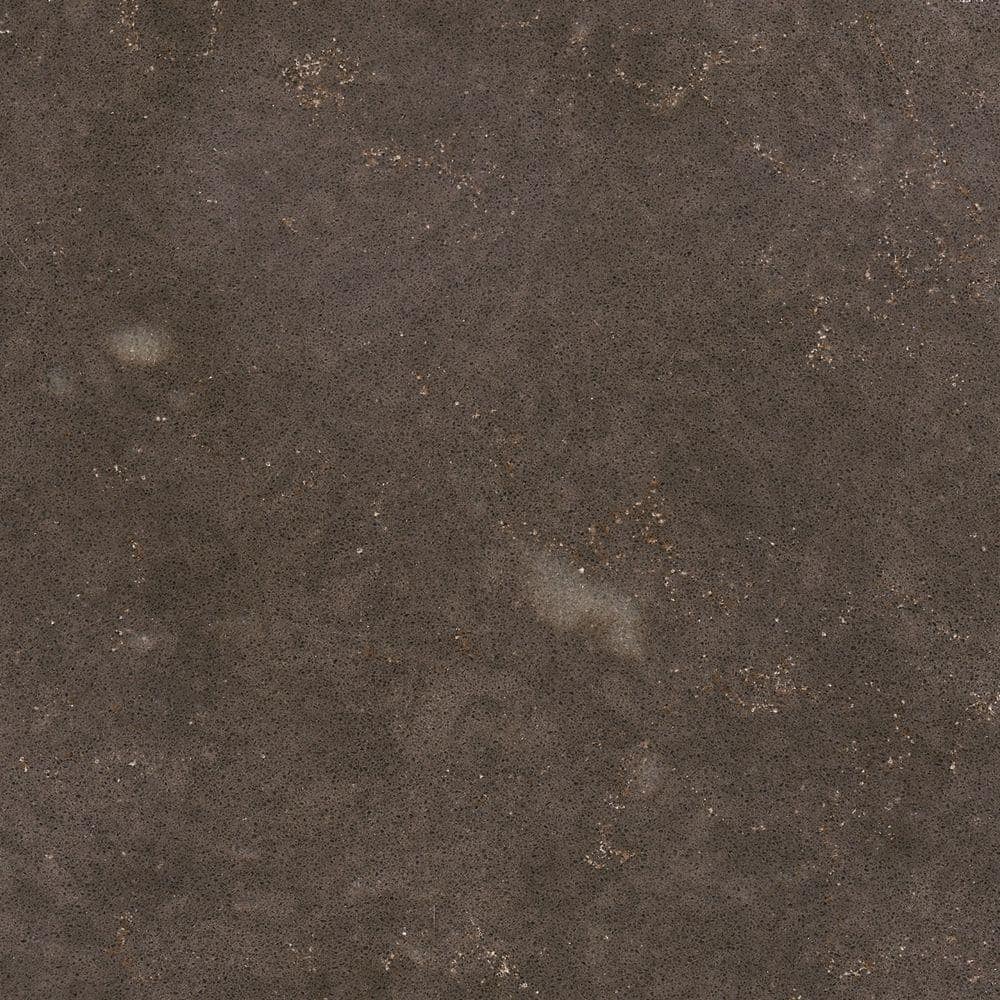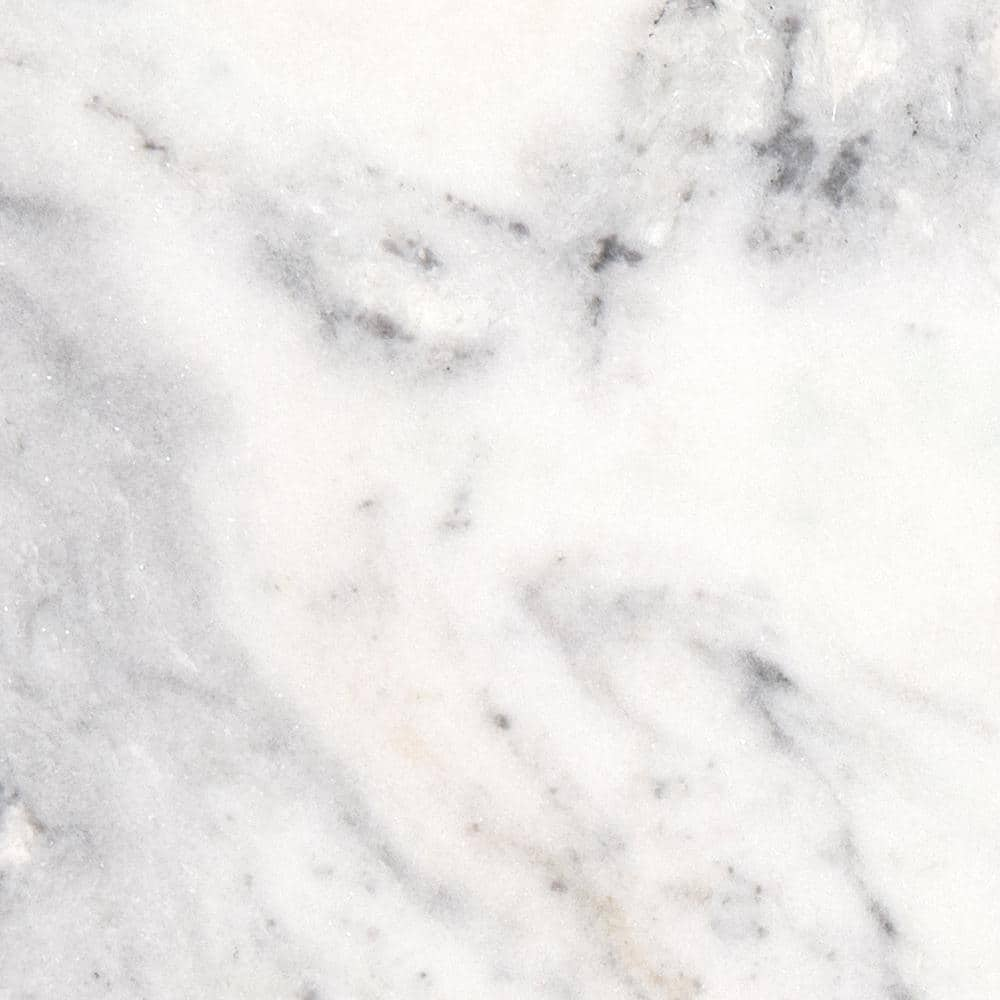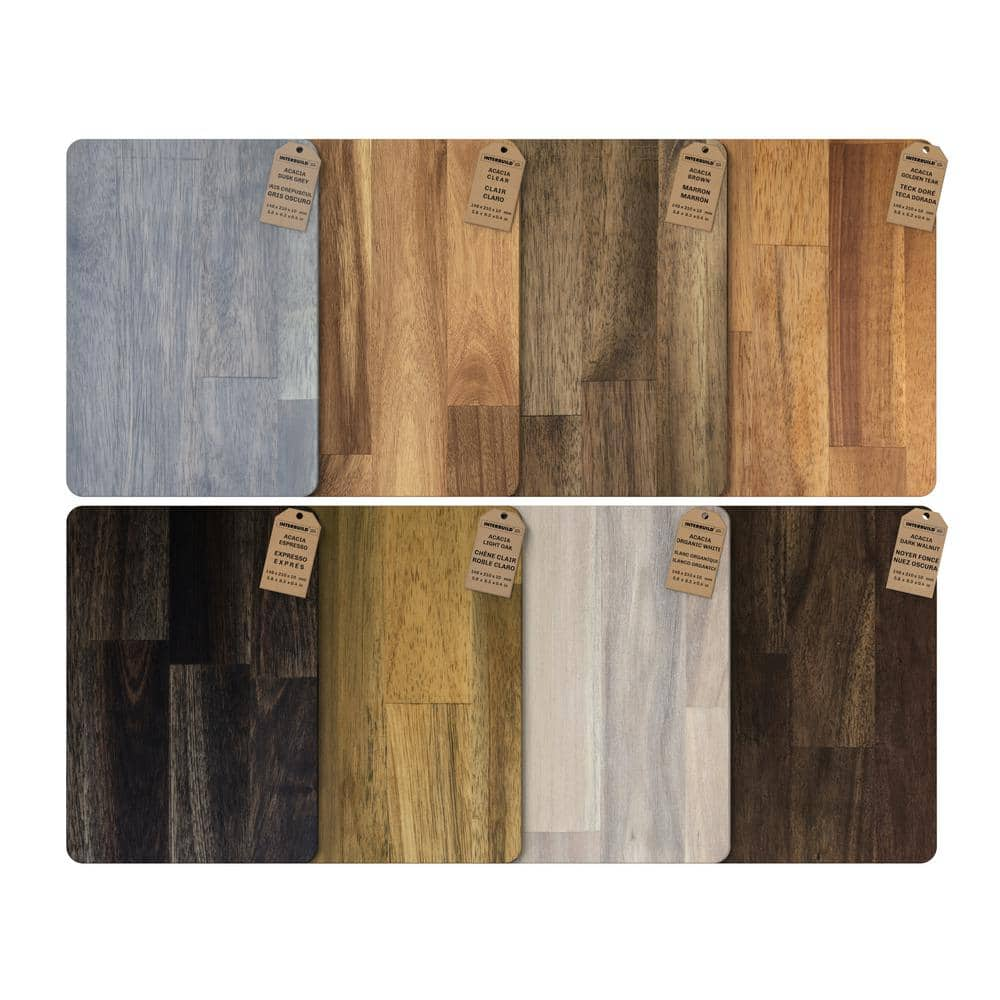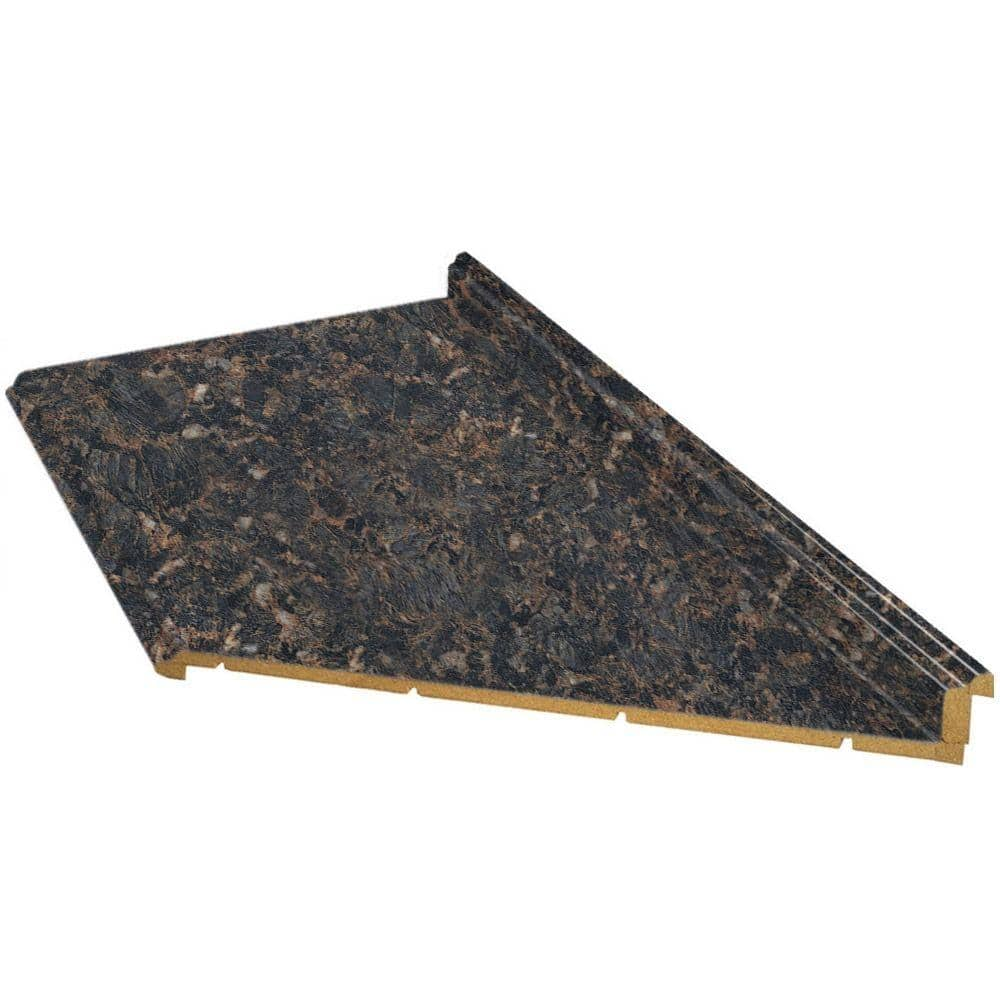Best Countertop Materials for Your Kitchen now

Published May 19, 2025
The best countertop material must be functional, but it can also add style to your home. Butcher block, stone and man-made countertops are a few types of custom kitchen countertop materials to choose from. This guide highlights the visual characteristics, durability and other features of several common kitchen countertop options.
Table of Contents
Choosing Kitchen Countertop Materials
Quartz Countertops
Granite Countertops
Marble Countertops
Solid Surface Countertops
Butcher Block Countertops
Choosing Kitchen Countertop Materials

Materials for kitchen countertops offer a variety of characteristics, so it’s important to know what you need before deciding. Check out this countertop comparison chart to see some characteristics.
Throughout the rest of this guide, even more key features are highlighted for various common countertop materials.
Look and feel:
- This feature addresses color options, the overall appearance and the structure of the material. When deciding the best countertop material for your home, the main question is what fits your personal style and preference.
Strength and cleaning:
- This category is the most detailed. Some materials withstand heat, water, cracks, breaks and dents with ease, while others are more fragile. Similarly, cleaning techniques vary with the options. It’s important to weigh the advantages and disadvantages against the other key features.
Budget:
- It’s reasonable to have an idea of how much of an impact the materials and installation will have on your budget. Fortunately, there are several affordable countertop options as well as more luxurious ones.
Installation:
- The ease or difficulty of installation is a critical point to consider. Some materials are best done by a professional, while others are good DIY projects. Either job may benefit from tips to make the process smoother.
Quartz Countertops

Look and feel:
- Quartz countertops are a mixture of natural quartz – one of earth’s hardest natural minerals – and resin.
- Quartz is available in a variety of colors and features subtle veins and patterns throughout the surface that mimic natural stone.
- This material has a shiny, polished finish.
Strength and cleaning:
- Quartz is nonporous, so it’s difficult for stains and bacteria to penetrate the surface.
- Quartz is an extremely durable choice, but because of its resin, heat can cause permanent discoloration, white spots and damage the surface.
- Cleaning should be done with a mild soap and soft cloth or glass cleaner for tougher stains.
Budget:
- Quartz is a beautiful but expensive option for countertops.
Installing:
- You can install your own quartz countertops, but it would be best to ask a friend for help given the heaviness of the material.
Tip: Quartz and quartzite countertops are not the same. For a countertop that's harder than granite but has a glassy, marble-like finish, choose quartzite.
Granite Countertops

Look and feel:
- Known for their natural beauty and durability, granite countertops are a top choice among homeowners.
- This material is available in a variety of colors.
- Since it’s naturally sourced, each rock slab features a unique design, granting you a one-of-a-kind finish.
Strength and cleaning:
- Granite has a porous surface, so it’s recommended to seal this type of kitchen countertop every 10 to 15 years to prevent bacteria from penetrating the surface.
- Avoid using harsh chemicals and opt for a mild detergent and a soft cloth for cleaning your countertops.
Budget:
- Granite is one of the more affordable types of natural stone countertops.
Installing:
Marble Countertops

Look and feel:
- Marble countertops add timeless elegance to a kitchen.
- No two slabs are alike, which makes marble a unique choice. However, marble's timeless style is sure to keep your kitchen on trend year after year.
- Like granite, marble comes in a honed or polished finish.
Strength and cleaning:
- As a natural stone, marble is durable and heat-resistant, but it etches and stains easily.
- Its polished finish can be compromised by common kitchen staples like lemon juice or tomatoes.
- Chips and cracks are also common, but they can be repaired with an epoxy or polyester resin.
- Use a sealer annually to help protect the surface.
- To clean your marble countertops, use a mild detergent and a soft cloth or sponge.
Budget:
- Marble countertops are a more expensive option than granite.
Installing:
- If you choose to install your own marble countertops, it can be done with basic tools.
Solid Surface Countertops

Look and feel:
- Solid surface countertops have a sleek, contemporary appearance that modernizes a kitchen.
- Available in countless colors, these types of counters are synthetically made from mineral derivatives.
- One of the best countertops for a high-traffic kitchen, solid surface countertops material can be molded to accommodate larger sinks.
Strength and cleaning:
- Solid surface countertops are exceptionally heat resistant and easy to repair.
- If any scratches occur, they can be easily buffed away.
- A solid surface countertop’s non-porous finish also requires very little maintenance.
Budget:
- The solid surface countertops material is a budget-friendly option for kitchen countertops.
Installing:
- Solid state countertops are a good DIY project. You will mostly need to make straight cuts, curved cuts and mirror cuts.
- Cutouts will be the most difficult cut to make in the solid surface countertops material.
Butcher Block Countertops

Look and feel:
- Naturally beautiful and durable, butcher block countertops bring a rustic, homey feel to a kitchen.
- Butcher block countertops are usually made from strips of wood glued together.
- The wood can come from a variety of sources such as cherry, maple, oak and walnut.
Strength and cleaning:
- Although it’s considered by some as the best material for countertops, butcher block can warp and hold stains.
- Seal it as soon as it is installed and reseal it regularly.
- Butcher block can be cleaned with soap and water, or you can try vinegar to clean and disinfect.
Budget:
- Butcher block generally is less expensive than granite or quartz.
- The cost depends on the wood, the grain type and whether it’s raw or finished.
Installing:
- You can install butcher block yourself, especially if you already have experience with woodwork projects.
- The materials aren’t too heavy, and you may have tools on hand already if you’re experienced.
- You may prefer a professional if you are a complete beginner.
Laminate Countertops

Look and feel:
- Since laminate countertops are synthetically manufactured, they're available in any color, pattern or style.
- Finish options vary from matte to high gloss and everything in between.
Strength and cleaning:
- Laminate is known for its versatility and stain-resistant surface.
- It is low maintenance and easy to clean.
- Laminate is not resistant to heat, scratches or moisture.
- It generally last a shorter amount of time than some other materials.
Budget:
- Laminate countertops are some of the most affordable countertop options.
Installing:
- Laminate is DIY friendly.
- Installation doesn’t usually involve special tools, and the material is lightweight.
- Peel and stick countertops are a great option for homeowners to install on their own.
Soapstone Countertops

Look and feel:
- Soapstone countertops are made from quarried stone.
- Its milky appearance is because of the amount of talc within the stone.
- Talc also makes soapstone a softer material than granite, but makes it more pliable.
- If you're looking for a classic appearance that blends with a wide variety of decor and styles, this is the one.
Strength and cleaning:
- By being less brittle, the chance of soapstone cracking from stress or weight is reduced.
- The material is not porous, so cleanup is a breeze with mild soap and a sponge.
- Soapstone is a great choice for cooks because the stone does not absorb liquids.
Budget:
- Soapstone is a fairly expensive countertop choice, but its classic looks and charm can make it worth the splurge.
Installing:
- Soapstone can be a DIY countertop project.
- You may be fairly surprised at how easy it is to cut the stone because, as mentioned earlier, talc makes the stone more pliable.
Ceramic Tile Countertops

Look and feel:
- While ceramic tile is usually reserved for flooring, it's a beautiful, long-lasting option for countertops.
- Ceramic tile was hugely popular in the 70's and 80's, and now it's making a comeback with more minimalistic styles.
Strength and cleaning:
- Ceramic tile stands up to heat and water, and when properly glazed, it won't stain.
- Tiles are more labor intensive to clean because of the dirt and debris that can accumulate within the grout.
- Bleach may be required to clean the grout, so be sure to use gloves and open a window for proper ventilation.
- Ceramic tile can chip, but the counter usually only needs a simple repair or a few replacement tiles.
Budget:
- Ceramic tile is mid-range in cost.
- It’s generally less expensive than stone, but it can still be costly.
Installing:
- If you're planning to DIY your ceramic countertops, make sure you know your way around a wet-cut tile saw and use safety gloves and goggles.
- The tiles aren’t very heavy, making them a good DIY option, but hiring a professional can make the job easier.
Stainless Steel Countertops

Look and feel:
- If you look at any restaurant kitchen, you'll see stainless steel countertops.
- While these countertops are usually reserved for serious cooks, they have made their way into the everyday person's kitchen design.
Strength and cleaning:
- Heat resistant and virtually indestructible, stainless steel is also a sanitary choice.
- It can be cleaned with mild soap and a sponge or stand up to even harsher detergents.
- Any scratches can be buffed and getting a thicker gauge will make it more difficult to dent.
Budget:
- Stainless steel countertops are expensive compared to other types of countertops
- When labor costs are factored in, this option can be even more expensive.
Installing:
- Stainless steel countertops would be best installed by a professional or someone who has experience with these types of installations.
Concrete Countertops

Look and feel:
- If you're looking to inject an industrial look into your kitchen, then a concrete slab is the answer.
- Concrete countertops have a distinct look that will make your kitchen stand out.
Strength and cleaning:
- Concrete counters are porous and prone to staining, but you can seal the surface to help reduce the likelihood.
- Clean any spills quickly, making sure to use a pH neutral, non-abrasive product.
- Also, rubbing alcohol diluted with water can be used for disinfecting.
Budget:
- Concrete is a moderately expensive option for countertops.
- Hiring a professional to install them will cost even more.
Installing:
- DIY concrete countertops are labor intensive, requiring many steps, including creating a mold.
- This would be a job fit for a professional or an experienced DIYer.
Choosing the best countertop material for your kitchen can be both a stylish and practical decision. Spend time on The Home Depot Mobile App to compare prices and appearance. You can also visit The Home Depot for actual samples of kitchen countertop materials. When you’re ready to build your dream kitchen, The Home Depot offers flexible financing options and countertop installation services.
Related Products
Related Guides
Leave Your Next Project to Us
Professional Countertop Installation
- Expert Countertop Installers Do It For You
We hand-select licensed and insured countertop contractors in your local area who are known for their experience, knowledge, and superior service.
- How Our Countertop Installation Service Works
To begin your countertop remodel, schedule a free consultation with a countertop specialist who will guide you through material samples, colors, and edge styles, and provide a project quote. After payment, a local countertop installer will visit your home within two days to take precise measurements and create a template for your new countertops. Once fabricated, the installer will remove old countertops if necessary and complete the installation, including any required plumbing adjustments.




































